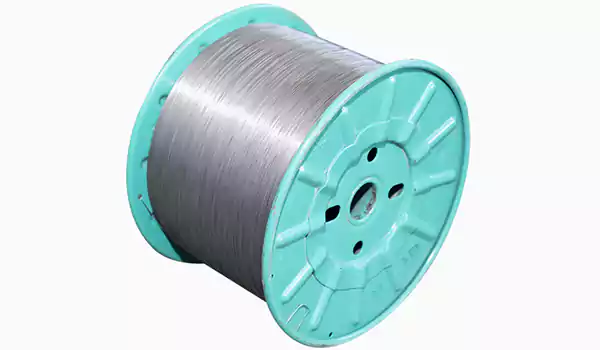
Determining the right steel tube for your application is based on comprehending its specs and practical deployments. Typical specs cover composition, gauge, size, and allowable margins. Aspects such as rated pressure, thermal tolerance, and corrosion defence are key when choosing pipes for industry, commerce, or residences. Tubular conduits are applied in building works, industrial fabrication, infrastructure projects, water services, gas provision, drainage pipelines, structural applications and specific sectors
- Comprehending the specific demands of your job is key to finding the proper piping
- Study applicable standards and codes for exact specifications of metal piping
- Select material types considering pressure ratings, thermal exposure and corrosivity
Tubular Steel: Strengthiness, Endurance, and Multipurpose Use
Tube steel is renowned for exceptional strength and is a top choice for many industrial, structural and commercial uses. Their outstanding durability derives from how they are manufactured and processed. Made by shaping steel slabs or billets into tubular profiles with welding or seamless drawing, they show sustained resistance to rust and damage and long operational life even under harsh conditions. Flexible tube steel fabrication produces simple or complex shapes that accommodate individual design and engineering needs. Serving in large-scale structural works, building frameworks and varied machinery, tube steel's rugged strength, dependable longevity and adaptable form factor make it vital in modern construction and manufacturingExtended Metal Mesh for Strengthened Security and Safety
Expanded metal mesh is increasingly chosen when applications require robust security and improved safety measures. The open configuration enables sightlines and simultaneously acts as a barrier to prevent unauthorized entry and reduce hazards. This material can be customized for aperture sizes and metal thicknesses to meet precise needs
- Resilient expanded mesh stands up to impact, malicious damage and extreme climatic conditions
- Additionally, easy installation and minimal upkeep expand its use in multiple industries
- Applied to secure infrastructure and ensure worker safety in industrial spaces, expanded metal offers an integrated protective solution
Industrial Deployment of Metal Mesh
Metallic mesh finds extensive industrial roles thanks to its robustness, endurance and versatile properties. It establishes a durable structure applicable to filtration, screening, reinforcement and protection tasks. In construction, steel mesh is frequently used as reinforcement in concrete to boost tensile strength and reduce cracking. Additionally, it is used in bridges, tunnels and civil engineering projects for structural support and load-bearing capacity. Within manufacturing, steel mesh functions crucially in screening and filtering equipment—the dense weave separating particles of varied sizes for sieving and purification. Steel mesh is applied in protection systems—guardrails, fences and cages—to deter entry and safeguard personnel. Because of superior tensile capacity it withstands forceful impacts and stress, proving appropriate for robust protective installations
Structural Uses of Metal Pipes
By virtue of their strength, metal pipes function as vital elements in many structural implementations. Their formability aids in producing resilient frameworks capable of supporting load-bearing applications across sectors. From tall structures to bridge infrastructure and underground pipelines, metal pipes serve as foundational support that tolerates harsh environmental pressures. Anti-corrosion properties and simple fabrication methods add to their prominence in modern construction workflows
Deciding on Tube Steel for Your Project
When engaged in construction or fabrication, deciding on the right tube steel is pivotal. Because of its strength, durability and relative lightness, tube steel serves well in many roles. But multiple available grades and specs can render tube steel selection somewhat difficult
- For project success, consider the application purpose, load specs and environmental factors
- Elements like wall thickness, cross-sectional diameter and material grade directly influence outcomes
Thick-walled, high-strength tube steel suits heavy builds, while thinner-walled, lighter steel fits lightweight uses
Collaborate with knowledgeable engineers or metal suppliers to discover the optimal tube steel solution for your task
Advantages of Expanded Metal for Building Use
Expanded metal offers multiple useful and efficient benefits for building and construction. The relatively light weight reduces handling difficulty, speeds installation and lowers labor costs. Additionally, the open design improves ventilation stainless steel sheet and drainage which mitigates moisture buildup. Sturdy build quality suits it for roles demanding strong resistance and enduranceMetal Pipe Connection Fundamentals
Pipe joint components are key elements in piping systems that secure continuous fluid and gas transmission. Which connection to use depends on pipe size, material, rated pressure and the specific application. Standard metal pipe connections include threaded, flanged and welded options that vary in strength and sealing performance. Threaded connections use male and female threads that are screwed together, flanged connections use bolted flat faces, and welded connections permanently join pipes with heat and pressure. Knowing each connection type's features ensures a leak-proof and functioning piping systemDIY Uses of Metal Steel Mesh
Steel mesh brings durable, versatile and strong characteristics suitable for various DIY creations. With an open interconnected grid it suits fence construction, screening and decorative work. Besides, being lightweight and easy to manipulate it is a favorite among both new and practiced DIYers
- Explore the use of metal mesh in your forthcoming DIY project
Metal Pipes: Sanitary to Structural Purposes
Metal pipes serve as vital components in contemporary building and infrastructure for strength, durability and versatility. Originally used mainly for plumbing and sanitary systems, metal pipes have evolved to play major roles in structural reinforcement and support. From foundations and supports to water supply and gas distribution networks, metal pipes deliver essential functions in modern infrastructure. Their solid construction supports high-pressure applications and corrosion immunity helps ensure long-term dependable performance. Besides, pipes’ adaptability makes them easy to form into various setups to satisfy different application requirements
Expanded Metal Design Options and Practicality
Expanded metal allows innovative design approaches while maintaining solid functional performance. The open layout enables both decorative architectural implementations and practical industrial safety functions. Robust expanded metal withstands considerable loads and still provides attractive appearance
- Moreover, expanded metal's open structure boosts ventilation and supports applications requiring heat dissipation
- Applications of expanded metal are wide-ranging across construction, manufacturing, transportation and creative design fields